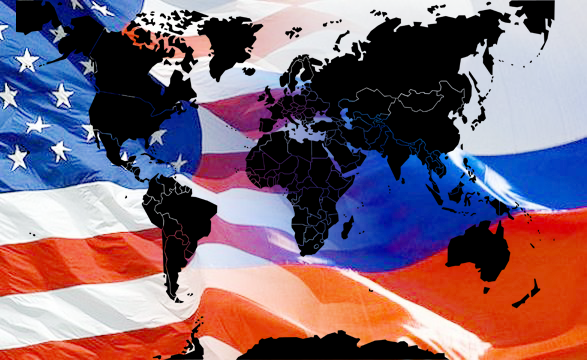 On Sept. 30, the Russian Federation launched a military intervention into the hot mess of suffering formerly known as Syria. Since that time, waves of airstrikes supported by ground operations have killed hundreds of militants and civilians alike, at once adding more bloodshed and urgency to a civil war that has already seen one of the largest refugee crises, as well as some of the gravest affronts to basic human rights and dignities, since the Second World War
On Sept. 30, the Russian Federation launched a military intervention into the hot mess of suffering formerly known as Syria. Since that time, waves of airstrikes supported by ground operations have killed hundreds of militants and civilians alike, at once adding more bloodshed and urgency to a civil war that has already seen one of the largest refugee crises, as well as some of the gravest affronts to basic human rights and dignities, since the Second World War
The rise of radical groups, including most notably the Islamic State, as well as the abhorrent actions taken by those groups and the Syrian government’s own armed forces, have impressed the conflict all the more indelibly on the international imagination.
Russia’s decision to intervene, then, comes at a time and place where no global politic action goes unjudged. International reactions have ranged from derision, aimed at Russia’s less than noble intentions to support incumbent dictator and friend-of-the-Kremlin-for-life Bashar al-Assad, to praise for Russia’s decisiveness in the face of the hand-sitting approach of the United States.
There’s ample support for both sides of this argument. Those in favour of the Russian intervention have but to appeal to the unquestionably evil nature of many of those groups that are the targets of Russia’s attacks. There’s no question the Russian intervention signals a circling of the drain for the particular vision of jihadist hegemony represented by ISIS and Co. This stance is made all the more defensible in light of the very real military power behind ISIS, the dwindling number of forces able to resist them in any substantial way, and the inaction of those countries with the military resources able to do so. Moreover, the threat of destabilization in those regions closest to Russia is very real given their proximity to Syria, and it’s one that the Russian government evidently takes with the utmost seriousness.
Those who criticize Russia’s intervention, however, have merely to cite the numerous human rights violations, political blunders, and all-around dick-headedness of the al-Assad regime and its allies. Even if it’s a matter of choosing the lesser of two evils, it’s nevertheless difficult to argue that Russia’s intervention is really humanitarian in nature when the lesser of those evils is responsible for the deployment of chemical weapons against civilians. The nobility of Russia’s intentions must also be qualified by the fact that Syria is home to the port of Tartus, one of Russia’s only warm-water naval bases, a military interest they no doubt wish to preserve.
The question of whether Russia ought to have intervened, then, is as complex as it is pressing in light of the international talks held in Austria this week. But in what sense can we even ask such “ought” questions where the actions of nation-states are concerned?
Jeremy Moar, a fourth year political science student, thinks that we can ask them only in a pragmatic sense.
“It’s difficult to bring morals into international politics. For instance, while both Russia and the United States ultimately have the same enemy—ISIS—there are numerous other practical considerations that have to be taken into account. The numerous ties between different groups—such as between the U.S. and the Russian-targeted Free Syrian Army—make it extremely difficult simply to support Russia’s actions.”
On this view, the language of moral right and wrong is left behind for what works: practical considerations and the protection of political interests.
Perhaps this is the bitter pill we must swallow. As much as we want our international politics to reflect our moral values, perhaps that cannot be a reality so long as those values are in no way agreed upon.
Does it makes sense to judge a military intervention in the same ethical terms we are so familiar with in our everyday, individual lives? Of course the indiscriminate killing of civilians is an obvious evil, but perhaps, unsettlingly, words like evil lose their original meaning and power in the context of international strong-arm politics.
As Moar puts it, “When it comes to the international balance of powers between nations like the U.S. and Russia, the decisions that get made often come down to power politics.”
